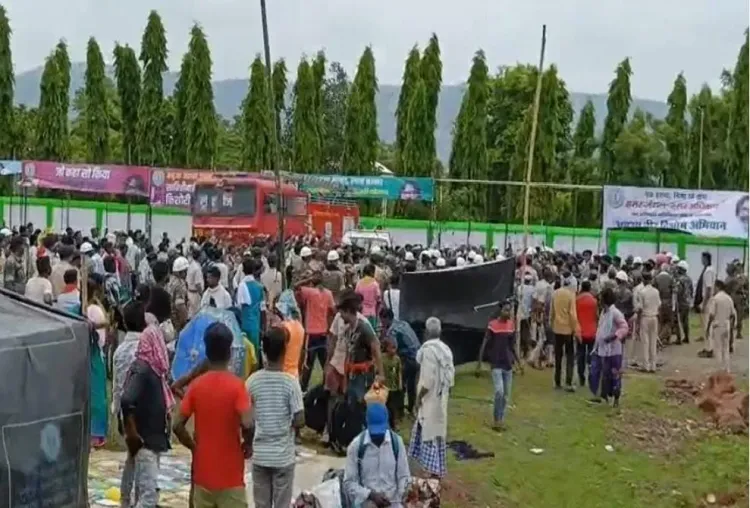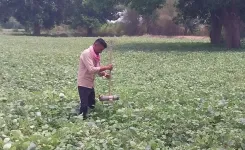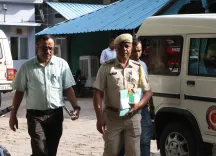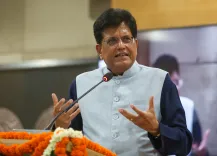Is British Rule Being Replayed? BJP Critiques Police Violence Against Tribals on ‘Hool Diwas’ in Jharkhand

Synopsis
Key Takeaways
- Political tensions in Jharkhand have escalated due to police violence against tribals.
- The incident occurred during ‘Hool Diwas’, a day honoring the Santhal uprising.
- BJP leaders have drawn parallels between the current events and colonial oppression.
- Bhognadih is historically significant for its connection to the Santhal rebellion.
- The actions of the police have sparked widespread condemnation and concern for tribal rights.
Ranchi, June 30 (NationPress) The political atmosphere in Jharkhand intensified on Monday following violent confrontations between tribal communities and law enforcement in Bhognadih village of Sahibganj district during the observance of ‘Hool Diwas’—a day dedicated to remembering the 1855 Santhal uprising against British colonial rule.
Prominent BJP figures, including Leader of Opposition Babulal Marandi and MP Nishikant Dubey, vehemently criticized the police's actions, claiming that the violence mirrored the oppressive tactics of the colonial era. They attributed responsibility for the incident to the Hemant Soren-led state government, accusing it of stifling tribal voices.
Bhognadih is historically significant as the birthplace of the Santhal rebellion led by Sido and Kanhu Murmu. Tensions escalated when police and administrative personnel attempted to dismantle a separate pandal set up by descendants of the tribal martyrs, who aimed to hold a parallel event to the official government ceremony. This led to a violent clash, during which police used lathi charges and tear gas, resulting in numerous injuries.
Describing the incident as “barbaric” and “deeply regrettable,” Marandi stated to the media, “The lathi charge and tear gas deployment against tribals in Bhognadih on the sacred occasion of Hool Diwas is utterly condemnable. Many villagers have suffered injuries from this brutal action.”
He mentioned having conversed with Sahibganj SP and Mandal Murmu, a descendant of Sido-Kanhu, and alleged that the crackdown was executed at the state government's directive.
In a strongly worded social media post, Marandi expressed, “Today’s brutality resurrects the traumas of British rule. Six generations later, the descendants of Sido-Kanhu are once again compelled to protest against tyranny and injustice on the very land where the historic Hool revolution commenced.”
He further claimed that the Hemant Soren government, which he described as being in the “embrace of infiltrators,” aimed to hinder Jharkhand’s tribal communities from drawing motivation from their revolutionary heritage.
“This conspiracy will not prevail. Just as Veer Sido-Kanhu, Chand-Bhairav, and Phoolo-Jhano once shook the British Empire, today's attack on tribals in Bhognadih will mark the beginning of this government’s downfall,” he asserted.
Godda MP Nishikant Dubey shared images of injured villagers on X, asserting that even women, children, the elderly, and Mandal Murmu were assaulted.
“Is this how you respect the legacy of freedom fighters? On Hool Diwas, the very descendants of Sido-Kanhu were beaten. Is this the government’s affection for tribals?” he queried.
BJP leader and former Jharkhand LoP Amar Kumar Bauri labeled the lathi charge and tear gas use in Bhognadih as an “unfortunate and disgraceful act.”
He remarked, “On the sacred land of Sido-Kanhu, the government denied the descendants of martyrs the opportunity to hold a memorial event. This is not governance; it is suppression of tribal pride under the burden of political arrogance.






